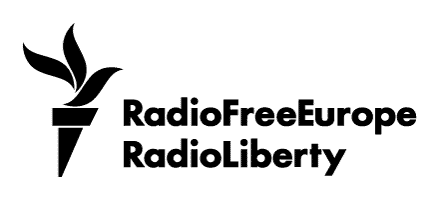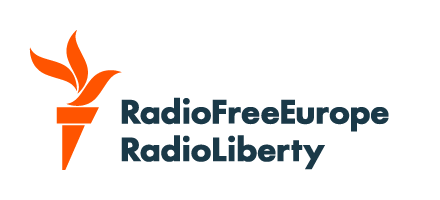The protest comes two years after the fall of Baghdad to U.S.-led troops.
The demonstration was the largest since the elections and the first since President Jalal Talabani and two vice presidents were sworn in and Ibrahim al-Ja'fari named prime minister.
The march drew several thousand supporters of the rebel Shi'ite cleric Muqtada al-Sadr, whose Al-Mahdi Army led a violent uprising against the occupation before U.S.-led troops conducted a major assault against that militia in August.
Clerics from the Sunni Committee of Muslim Scholars had also encouraged people to join the protest. That same group refused to participate in the January elections and urged a boycott by potential voters.
Demonstrators today waved Iraqi flags and carried banners with anti-U.S. slogans.
"No to the occupiers," they chanted. "Yes to Iraq."
"We want a stable Iraq, and this will only happen through independence," Reuters quoted a statement from al-Sadr's office saying in connection with the protest. "There will be no security and stability unless the occupiers leave.... The occupiers must leave my country."
Symbolic Spot
The protest venue was symbolic. Baghdad's Firdos Square is where U.S. soldiers toppled the huge statue of Saddam Hussein in 2003 in a scene that was played out on television screens all over the world.
Later that day in Washington, U.S. Defense Secretary Donald Rumsfeld proclaimed it the end of a hated regime.
"Saddam Hussein is now taking his rightful place alongside Hitler, Stalin, Lenin, Ceausescu in the pantheon of failed brutal dictators, and the Iraqi people are well on their way to freedom," Rumsfeld said.
Weeks later, on 1 May, President George W. Bush declared the end of "major combat operations in Iraq."
'What Did We Get?'
But there has been much instability in the wake of Hussein's overthrow, and many Iraqis are frustrated at the pace of reconstruction.
"The war has been finished for two years," protester Ali Hussein said today, according to AFP. "What did we get? Nothing. Our country has become the center of terrorism. There is no electricity, no services, nothing."
Security remains a problem, with insurgents launching attacks daily.
In one of the latest incidents, police say the bodies of 15 Iraqi soldiers were found today south of Baghdad. All were apparently killed by insurgents.
However, the violence appears to have declined since elections on 30 January.
The United States is gradually handing over security responsibilities to Iraqi forces. But there is no concrete date for withdrawal. U.S. officials say U.S. troops will leave only once Iraqis are ready to secure their country.
For today's protesters, that's not soon enough. "Force the occupation to leave our country," read one banner.
Other Demands
Al-Sadr's representatives also expressed other demands from the young cleric, who is in his mid-30s. They include, according to AFP: a speedy trial for Saddam Hussein, who was captured by U.S. forces in December 2003; elimination of Saturday as a day off in favor of Thursday because of the former's association with the Jewish Sabbath; greater security at Iraq's borders; and moves by the government to legitimize the resistance by allowing it into the political process.
Protesters said they are also frustrated that Saddam Hussein and his senior officials have still not been tried. Some of those processes are expected to start this year, but it is unclear how soon Saddam himself will face justice. He was arraigned on 1 July 2004 for alleged crimes against humanity by a U.S.-backed court.
"We want to try Saddam and his men ourselves with no foreign interference," Reuters quoted Baghdad protester Murtatha al-Yaqubi as saying.
Security forces shut down central Baghdad ahead of the demonstration, but Interior Ministry spokesman Sabah Kadhim said authorities were not expecting problems.
"We're quite relaxed about it," Kadhim said, according to Reuters. "The demonstration is supporting what the Iraqi people and the Iraqi government have said they want -- a trial for Saddam and the departure of U.S. forces."
[For more on events in Iraq, see RFE/RL's dedicated The New Iraq webpage.]
The demonstration was the largest since the elections and the first since President Jalal Talabani and two vice presidents were sworn in and Ibrahim al-Ja'fari named prime minister.
The march drew several thousand supporters of the rebel Shi'ite cleric Muqtada al-Sadr, whose Al-Mahdi Army led a violent uprising against the occupation before U.S.-led troops conducted a major assault against that militia in August.
Clerics from the Sunni Committee of Muslim Scholars had also encouraged people to join the protest. That same group refused to participate in the January elections and urged a boycott by potential voters.
Demonstrators today waved Iraqi flags and carried banners with anti-U.S. slogans.
"No to the occupiers," they chanted. "Yes to Iraq."
"We want a stable Iraq, and this will only happen through independence," Reuters quoted a statement from al-Sadr's office saying in connection with the protest. "There will be no security and stability unless the occupiers leave.... The occupiers must leave my country."
Symbolic Spot
The protest venue was symbolic. Baghdad's Firdos Square is where U.S. soldiers toppled the huge statue of Saddam Hussein in 2003 in a scene that was played out on television screens all over the world.
Later that day in Washington, U.S. Defense Secretary Donald Rumsfeld proclaimed it the end of a hated regime.
"Saddam Hussein is now taking his rightful place alongside Hitler, Stalin, Lenin, Ceausescu in the pantheon of failed brutal dictators, and the Iraqi people are well on their way to freedom," Rumsfeld said.
Weeks later, on 1 May, President George W. Bush declared the end of "major combat operations in Iraq."
'What Did We Get?'
But there has been much instability in the wake of Hussein's overthrow, and many Iraqis are frustrated at the pace of reconstruction.
"The war has been finished for two years," protester Ali Hussein said today, according to AFP. "What did we get? Nothing. Our country has become the center of terrorism. There is no electricity, no services, nothing."
Security remains a problem, with insurgents launching attacks daily.
In one of the latest incidents, police say the bodies of 15 Iraqi soldiers were found today south of Baghdad. All were apparently killed by insurgents.
However, the violence appears to have declined since elections on 30 January.
The United States is gradually handing over security responsibilities to Iraqi forces. But there is no concrete date for withdrawal. U.S. officials say U.S. troops will leave only once Iraqis are ready to secure their country.
For today's protesters, that's not soon enough. "Force the occupation to leave our country," read one banner.
Other Demands
Al-Sadr's representatives also expressed other demands from the young cleric, who is in his mid-30s. They include, according to AFP: a speedy trial for Saddam Hussein, who was captured by U.S. forces in December 2003; elimination of Saturday as a day off in favor of Thursday because of the former's association with the Jewish Sabbath; greater security at Iraq's borders; and moves by the government to legitimize the resistance by allowing it into the political process.
Protesters said they are also frustrated that Saddam Hussein and his senior officials have still not been tried. Some of those processes are expected to start this year, but it is unclear how soon Saddam himself will face justice. He was arraigned on 1 July 2004 for alleged crimes against humanity by a U.S.-backed court.
"We want to try Saddam and his men ourselves with no foreign interference," Reuters quoted Baghdad protester Murtatha al-Yaqubi as saying.
Security forces shut down central Baghdad ahead of the demonstration, but Interior Ministry spokesman Sabah Kadhim said authorities were not expecting problems.
"We're quite relaxed about it," Kadhim said, according to Reuters. "The demonstration is supporting what the Iraqi people and the Iraqi government have said they want -- a trial for Saddam and the departure of U.S. forces."
[For more on events in Iraq, see RFE/RL's dedicated The New Iraq webpage.]




